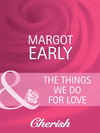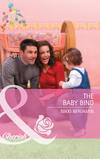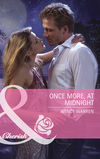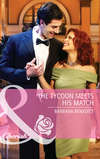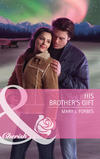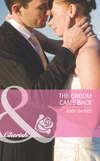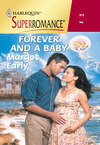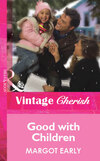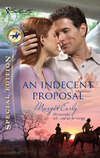Kitabı oku: «The Things We Do For Love», sayfa 3
If Angie knew nothing about fashion, the fact had obviously made no impact on Jonathan Hale. With a lurch of her heart, Mary Anne saw the diamond on Angie’s delicate left hand.
Mary Anne held out her own hand. “Yes, and you’re Angie. It’s nice to meet you. This is Cameron McAllister.”
“I so admire your radio essays,” Angie told Mary Anne with obvious sincerity. “I wish I could write something like the things you say. I listen to you every week. My favorite one was the one about the Civil War cemetery—about the brothers who fought on different sides of the conflict.”
“Thank you.” Mary Anne’s emotions were mixed. She felt proud and happy because of Angie’s words. And yet she planned to steal Angie’s fiancé. She could tell that Angie was obviously a nice person, one of those deeply genteel people that the West Virginia mountains sometimes produced. A twinge of shame ran through Mary Anne, and she remembered Clare Cureux’s warnings. How would Jonathan’s falling in love with Mary Anne impact Angie? What if being jilted was the kind of thing Angie couldn’t get over?
Now Angie turned to Cameron. “And everyone says such good things about your work at the women’s center. My friend Rhonda says you’re an angel to those women.”
All delivered in a West Virginia twang that seemed the pinnacle of charm.
Cameron smiled politely. As Jonathan’s fiancée excused herself to return to the party, Cameron glanced at Mary Anne.
“I know,” Mary Anne said. “She’s sweet and adorable.”
Cameron said, “Maybe. But I’m not an angel.”
JONATHAN WAS DRINKING a Frog’s Leap cabernet. Mary Anne discovered this in a brief moment of conversation with him as she sipped her own merlot. She managed to tell him how nice she thought Angie was and ask what he thought of her idea for next week’s essay—October celebrations—all while watching the level of wine in his wineglass and praying for a moment of opportunity.
Jonathan, however, was engaged in a distracted conversation with one of the female disc jockeys who was also the friend and future bridesmaid of Angie Workman. Her name was Elinor Sweet.
Jonathan said, “What color dress you wear is between you and Angie. I couldn’t care less.”
“But you could intervene. I mean, orange? Me, in orange?”
Elinor had honey-toned skin, which would probably look great in anything.
Jonathan looked over at Graham and said, “Graham, please explain to Elinor why it would be a mistake for me to try to choose the color of the bridesmaids’ dresses.”
Mary Anne watched Graham Corbett and Cameron join the group.
Cameron said, “I’m sure Angie would want to know how you feel about wearing orange, Elinor. If it were my wedding, I would want to know.”
Mary Anne met Cameron’s eyes briefly and knew her cousin was dying to add, And you wouldn’t be in it.
Graham said, “I think etiquette dictates that the bride’s wishes carry the day.”
“But who wants a wedding color that will look bad on bridesmaids?” Mary Anne asked. “Tell Angie how you feel, Elinor. Though I’m sure anything would look great on you.”
“But the question is,” Jonathan said, “if I should step in. Obviously, I shouldn’t.”
“Obviously,” Graham echoed.
Mary Anne wanted to scream that obviously the bride should choose colors and clothes that would look good on her friends, and whoever heard of bridesmaids dressed in orange? She asked Graham, “What makes you the expert on weddings?”
“He’s the WLGN relationship expert,” Jonathan said.
Mary Anne rolled her eyes. “A man.”
“What’s wrong with men?” Graham asked.
“It’s just a bit one-sided. That’s all.”
Jonathan’s eyes lit up, as if what she’d said had struck home with him. “That gives me an idea…” He glanced at his nearly empty glass.
Mary Anne was vigilant.
As he took the last sip, she drained half of her own glass in one long gulp and lifted Jonathan’s glass airily from his hand. “Another for you, groom-to-be?”
Distracted, he glanced at her. “Oh. Thank you, Mary Anne. When you come back—”
But she was already walking away, leaving the crowd behind.
This was the moment. She carried both glasses to the refreshment table, which was unattended. She found the cabernet and carefully poured another glass, holding the uncapped vial of potion against her palm, and letting it run into his glass with the wine.
It couldn’t work, but what the hell?
Frowning slightly, she spotted Angie again. Far from spending every moment on her fiancé’s arm, Angie was speaking intently to Max Harold, the Embassy Building’s custodian. Max used to work in the mines and could talk for hours. Mary Anne had to admit the old man was interesting, but clearly Angie was a good listener.
There was, Mary Anne told herself, nothing wrong with what she planned to do. All was fair in love and war.
She poured herself another glass of merlot and took a sip to steady her nerves.
“Ah, thank you, Mary Anne.”
A masculine hand took Jonathan’s glass from her hand.
Mary Anne did not release it. “No, that’s for—” She could not let the glass go.
Appalled, she felt the stem break, the base coming off in her hand.
Graham Corbett looked in astonishment from the piece she held to the glass he held.
She reached for his part of the glass just as he lifted it to his lips and drank deeply.
Mary Anne could not breathe. Her mouth was open, she was half-panting, her hand still reaching, reaching…
“Excellent,” Graham said and gazed at her thoughtfully.
She wanted to swear.
But she couldn’t even breathe. Everything was swimming. Her head was swimming. And the glass was empty.
CHAPTER THREE
MARY ANNE STUMBLED into Graham, and he caught her.
She smelled earthy, sexy and natural. He studied the scattering of freckles across her nose, the paintbrush lashes, the full lips.
“Are you all right?” he asked.
Mary Anne sank onto a folding chair near the table. “Yes. Yes.”
“What happened?” Jonathan Hale joined them, gazing in concern at her.
Graham saw that earlier expression of horror wisp over her face again.
Mary Anne pushed herself out of the chair. “Nothing happened. I’m fine. Just a bit light-headed.”
“You’re a skinny thing,” Jonathan told her. “If you haven’t eaten, let’s get something in you.”
Graham felt irrational annoyance. “She’s not fading away.”
Her part of the glass had rolled away on the floor, and Jonathan picked it up. Graham handed the other part to him and focused on Mary Anne. She was a strong, healthy woman, vibrant as a Thoroughbred horse. This one was no fading lily or shrinking violet or whatever it was that was supposed to be prized in Southern women, and he didn’t believe she was light-headed, either. Probably just upset about Hale and Miss Workman. He looked at Jonathan, who was handing her a bottle of water.
“Thanks,” she said, taking it gratefully, uncapping it and then simply gazing at the bottle, looking shattered.
Jonathan put a hand on her back, and she gave him a look that seemed to say, What in the hell are you doing touching me?
In fact, Mary Anne was now wondering if she’d actually seen Graham Corbett drink the glass of wine she’d spiked with love potion. And if she had seen that, as she was sure she had, why was Jonathan Hale suddenly noticing her existence? She whispered, “I need to…I need to go home.”
“You can’t drive,” Jonathan said. “Just sit down, and let’s get you something to eat. You’ve been manhandled.”
“What?” Graham said in disbelief.
“You were fighting with her over my glass of wine,” Jonathan replied.
“Didn’t know it was yours, but I did not manhandle Mary Anne.”
Jonathan ignored Graham. “I’ll get myself another,” he told Mary Anne gently. “Thanks for trying.”
“Ah, Cameron.” Graham turned to Mary Anne’s cousin and dropped some keys into her hand. “My car’s just outside in the bank parking lot. Why don’t you take it and meet us at Mary Anne’s house? Can you drive a shift? I’ll drive Mary Anne in her car.”
“Maybe we should hear what Mary Anne wants,” Jonathan said, staring intently at Graham.
And they all, Graham and Jonathan and Cameron, looked at Mary Anne, as if to discover what she wanted.
She had no answer, except that Graham was paying attention to her in front of Cameron, who couldn’t help seeing the direction of the wind. And Jonathan was finally noticing her—but he was engaged! Everything was messed up and she wished she’d never gotten involved with the love potion that Graham Corbett had drunk.
She stared at the bottle of water and lifted it to her mouth, drinking deeply. Drinking in a clear, bright thought.
Love potions don’t work anyhow.
MARY ANNE MADE her excuses—to Jonathan and his fiancée and to Cameron, who had secured the promise of a ride home from Graham—and was back at her grandmother’s house before ten, just as Nanna’s housekeeper and attendant, Lucille, was about to turn out Jacqueline Billingham’s bedroom light. Putting the debacle with the love-potion-that-wouldn’t-work-anyway behind her, Mary Anne hurried upstairs to kiss her grandmother good-night.
Nanna still sat up against a three-cornered pillow, wearing a nightgown made of some delicate cotton that reminded Mary Anne of the woman’s soft skin, grown thinner with age yet always seeming smooth and young. As usual, her grandmother smelled good, the scent of her night cream reminding her of roses. An Emilie Loring novel, marked with a lace bookmark, sat on the bedside table next to Nanna’s water glass and rosary beads. Mary Anne kissed her, and Nanna, her white hair loose for the night, asked, “Did you have a good time, dear?”
“Yes,” Mary Anne lied blithely.
“And did Cameron come back with you?”
“No,” Mary Anne said. “She has a ride home with someone else.” Mary Anne steered the conversation carefully away from mentioning any possibility of Cameron being, in any sense, with a man. Rationally, she knew this was unnecessary. However, some genetic reflex compelled her to participate in the family conspiracy of pretending the world was like one of Nanna’s romance novels. Even if sometimes it seemed to her that the pretense was subsuming her own reality.
Mary Anne had been a rebellious teenager, a Florida surfer girl. Every summer, her mother had sent her north to Logan, where Mary Anne, rather than succumbing to her grandmother’s influence, had spent every free moment with Cameron and the sort of boys their mothers hated, doing every forbidden thing one could arrange and usually escaping detection.
After that, Mary Anne had gone away to university in New York City, but she’d still returned to Logan each summer. Gradually, she had ceased to be a hellion, had entered therapy to help her accept everything she hated about her family and had become a decent contract bridge player, who could prepare a nice-looking dish for a church potluck and who sent thank-you notes on time.
It was now five years since Mary Anne had come to live with Nanna. The drawback was that Mary Anne could not bring a man to her grandmother’s house for the night or allow her grandmother to know that she would spend the night at a man’s house. Her grandmother did not want the world to be the kind of place where men and women who were not married to each other had sexual intercourse. So Mary Anne was due an Oscar for lifetime achievement, for pretending she would never consider sleeping with a man outside of marriage. The most difficult part of the pretense was that Mary Anne simply couldn’t lie to her grandmother.
So for five years she hadn’t spent the night with a man.
She’d had rare, brief sexual encounters with men at their homes and then said she needed to get home, citing newspaper deadlines. Because the world could not wait for her feature on the Logan Garden Tour.
Cameron had once asked her, “What’s Nanna going to do if you ever want to move in with someone? A man, I mean.”
“There’s no one I want to move in with,” Mary Anne had replied. “Anyhow, the same applies to you.”
“No, it doesn’t. Nanna knows I’ve lived with men.”
This was true. Nanna had simply said, “Oh, my,” and, “Darling, could you find this color of embroidery floss in my bag? My eyes are having trouble picking it out.”
Mary Anne wasn’t sure what she thought would happen if she let Nanna down by doing what Cameron had done with so little consequence. Nonetheless, she couldn’t bring herself to disillusion the older woman.
Well, it wasn’t going to be a problem anytime soon, Mary Anne reflected later that night as she curled up in her four-poster missing Flossy.
The wrong person had drunk the love-potion-that-would-not-work.
GRAHAM CORBETT LAY on a comfortable, if ugly couch in the master bedroom of his home, his feet on a tile-topped Craftsman encyclopedia table that had been a gift from his mother. The graceful two-story white house, with its wraparound porches and its upper balconies, was too big for one person. Nonetheless, he liked it.
Like Mary Anne Drew, he lived on the exclusive island of old homes known as Middleburg. Reached by a bridge that crossed the river, Middleburg was a charming spot. The hills rose behind his home, sometimes bringing nature closer than he wanted. For instance, there’d been a time last summer when he’d found an eight-foot-long black snake curled up under the swing on his back porch. Graham was not a snake lover and he really didn’t give a damn about the inroads they made on the rodent population. He’d headed to the garden shed, intending to grab a shovel and cut off the thing’s head, and there he had found a copperhead curled up in his watering can.
He’d gone back to the house and poured himself a whiskey. When he’d returned to the porch, the black snake was gone. He’d knocked back the glass of whiskey and considered what to do about the copperhead in the watering can. First, he must cover the opening in the top of the can so that the snake would not escape. Then, he needed to kill or dispose of the snake. But how?
He was on his second whiskey when his neighbor David Cureux popped over to invite Graham to join a committee to discuss health plans for city workers. Cureux, a former obstetrician, was a council member and had become a friend.
Graham told David about the copperhead. David went home for his shotgun, came back and killed the copperhead. To Graham’s astonishment, however, David first dumped the copperhead out of the watering can—explaining that he didn’t want to get holes in the can.
Two other neighbors, attracted by the sound of the shotgun, came over to see what was going on. One told Graham a story about a child carrying baby copperheads in a jar, thinking they were worms, holding his hand over the top of the jar, being bitten repeatedly and then dying from the venom. Subsequently, according to the neighbor, a policeman put the jar of copperheads in the trunk of his car, which then had to be impounded and fumigated to kill the reptiles. David Cureux challenged this story as nonsense, but for weeks Graham dreamed of finding snakes in his automobile, in his bed, in his bathtub, in his basement—virtually everywhere. The woman who recorded the astrology show at the radio station told him that dreams about snakes reflected the evolutionary ability to change, the urge to survive and how he dealt with the impulses of the most ancient part of his brain.
Jonathan Hale had argued that snakes in dreams were definitely about sex.
The astrologer had retorted, “Isn’t that what I said?”
Graham thought the dreams were about the basic terror of sitting down on the porch swing and discovering a black serpent of notoriously aggressive nature coiled beside his feet.
Hale. What had the station manager been doing getting touchy-feely with Mary Anne tonight? Wasn’t the man supposed to be celebrating his engagement?
Graham needed to stop thinking about the woman. What was this sudden obsession with her? He’d always found her attractive, yes, and he took great pleasure in baiting her, simply because of her worship of Jonathan Hale and her awe of his experiences in Rwanda and Afghanistan. But Graham wasn’t sure he wanted a relationship, and in any case Mary Anne had made it clear she wanted nothing to do with him.
Until the strange business of her trying to set him up with Cameron.
Cameron. Cameron did nothing for Graham. She was pretty, if you liked the type. But he thought she was hard, as well. It was her cousin who interested him.
Strange. She’d annoyed him at their very first meeting five years earlier. The former station manager had introduced him to Mary Anne as “a psychologist who hosts a talk show dealing with relationship problems.” It hadn’t been as slickly phrased as Jonathan Hale would have put it…and did express it after he replaced the former manager. But essentially it had been accurate.
The new kid on the block, fresh from her New York job covering Milan fashion shows or whatever the hell it was she had done, had said, “No doubt calling up a wealth of life experience. It’s a pleasure to meet you, Graham. I’ve heard your show.”
Innocuous enough.
But what had she meant about life experience? Puzzled, he’d stopped her at the water cooler a few minutes later and asked her what she meant.
Then, she’d dissembled. She’d shrugged and said, “I mean, we all work with what we’ve experienced. That’s all I meant.” And she’d turned away fast. Escaping.
She’d been nasty, and when challenged she’d denied having said anything offensive. Nor was the undercurrent of her words imaginary. Because a week later, she had introduced him to another woman as “the bachelor guru of female satisfaction.”
The bachelor guru.
Which was inaccurate and incomplete.
Graham Corbett was a widower.
THE PHONE AWOKE Mary Anne the next morning. She saw the numbers on her alarm clock—nine-thirty—and snatched the receiver from its cradle. How had she slept so long? “Hello?”
“Mary Anne? It’s Jonathan.”
Her heart pounded. “Oh, hi,” she said, squinting against the autumn’s morning light.
“I just wanted to see how you are this morning. Did you get home okay?”
“Oh. Of course. Thank you. It’s really nice of you to check. I was fine. I am fine,” she corrected.
“Good,” he said. “Good.”
He sounded as nervous as Mary Anne felt.
He said, “There’s something I want to ask you. I ran it by Graham last night, and he was game.”
Dark presentiment hovered.
“I heard what you said about him offering a one-sided view on relationships. So I suggested that you be his guest for a four-week segment on dating. If it works out, we could have you there regularly as a guest.”
Mary Anne blinked. Be on Graham Corbett’s hideous, tacky talk show?
But it was exposure. It was something else for her resumé. She wouldn’t become a celebrity. It wasn’t any different, really, from her radio essays.
But it wasn’t as anonymous as journalism. In journalism there was a dignity lacking in—well…She separated herself mentally from her father’s public and private personas, which were essentially the same. She would never become like him.
“I’m hardly qualified,” she said.
“You’re an attractive woman. You date, right?” Jonathan asked.
You’re an attractive woman. If only it didn’t feel so much as if he was damning her with faint praise. “I date,” she confirmed. Occasionally. Almost never lately, because there was no one she wanted to date.
“You can do it,” Jonathan said. “You’ll give great advice.”
Like how to steal someone’s fiancé with a love potion? The thought of what she’d done the night before was mortifying. In a way, she supposed, it was better that Graham had drunk it. It wasn’t going to work, and this way it was as if she hadn’t actually tried to spike Jonathan’s drink.
Mary Anne said, “I’d like to…think about it.”
“Well, I plan to be at the studio most of the day doing paperwork,” he said. “Come by if you want to talk about it—or just hang out.”
Mary Anne widened her eyes. It was nothing. He was just being a friend. “I…might,” she said.
“Great. I’ll look for you. We’ll go have coffee.”
“I said I might,” she clarified.
“Then, I’ll hope,” he replied.
She hung up the phone, squinting, heart beating hard, playing the conversation through her mind. Come by if you want to talk about it—or just hang out.
Did it mean anything? Was he finally interested in her?
Interested or not, he was engaged to another woman.
And he hadn’t called her on the phone to say that relationship was broken because he’d suddenly realized he didn’t want to marry Angie Workman. Instead, he’d called her and told her he’d be spending the day at the studio. Sunday, when the studio was usually quiet, the station running prerecorded programs.
No, she was being silly. People popped in and out on Sundays.
What if she made an excuse to go down to the station? Was that what he hoped would happen? She couldn’t decide whether that was good or bad.
She called Cameron.
“GRAHAM DRANK the love potion.”
Cameron’s heart sank. It wasn’t that she believed the love potion would work. All the same, Graham Corbett’s drinking it seemed a sign—a sign that he and Mary Anne were going to end up together.
In any case, he was not attracted to Cameron. If he had been, she would have felt it. Lots of men were attracted to her. But last night, when Graham had taken her home, he’d seemed deeply preoccupied.
Cameron lived in an old miner’s company house that had been moved from its original location to the foot of Jack Hollow. When she’d climbed out of Graham’s car, the dogs came to greet her. Wolfie was feral, a black animal almost certainly part wolf, who’d gradually become tame and was loved by the people of the hollow, and his daughter, Mariah, Cameron’s own dog. Cameron had glanced into the car at Graham but he was simply waiting, engine idling. No hope.
She told Mary Anne, “I don’t think he needed to.”
“Needed to do what?”
“Drink the love potion. I think he’s already seriously smitten with you.”
“Well, I’m not smitten with him. What happened when he took you home?”
“Absolutely nothing.”
Mary Anne said, “Well, forget him. Jonathan called.”
Cameron listened to the details, saying, “But he didn’t drink the love potion. Maybe this is what Clare meant—that they don’t always work the way you think.”
“She told me to make sure the right person drinks it.”
Cameron considered, curious. “If I’m up at her place again, I’m going to ask her about other things that have happened with love potions.” Maybe she has something that will help me get over my stupid crush on a man who likes my cousin. “You’re going to do the show with Graham, aren’t you?”
“I don’t know. I’m thinking about it.”
Cameron remembered something she’d meant to ask the night before. “Hey, can you help me with Women of Strength next weekend?”
“As long as it’s not caving.”
Cameron smiled, remembering that on a previous caving trip Mary Anne, who wasn’t proportioned for the sport, had gotten stuck in a narrow passage. “It isn’t this time, but we’re doing Big Jim’s Cave at the end of November and I want you to do that with us. You won’t get stuck there.”
“What’s next week’s joy?”
“Hiking and studying wild plants with a local herbalist.”
“Sure.”
“Good. Okay. I’ll talk to you later.” The local herbalist was Clare Cureux and Cameron supposed she had some ulterior motive—that perhaps Clare could remove Graham’s infatuation with Mary Anne. Then, she blinked, feeling sad, knowing that love potions, like happily ever afters, were just dreams from Nanna’s books.
Ücretsiz ön izlemeyi tamamladınız.
